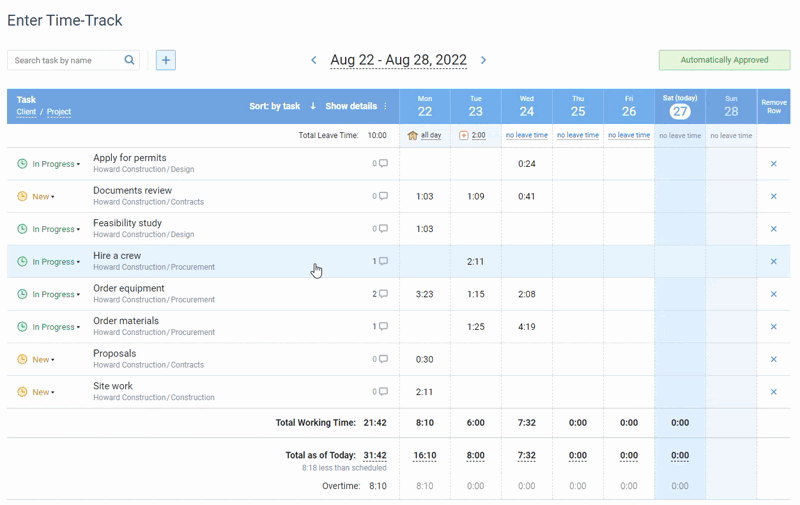
As a teacher, you know that finding the perfect work-life balance is key to maintaining your sanity. But it can be hard to figure out how to juggle all of your responsibilities without feeling overwhelmed.
Luckily, there are some workable methods for creating a more balanced lifestyle, even if you feel like you can never seem to find enough hours in the day to get everything done. So, check out our tips and use them to find the right teacher work-life balance for yourself.
What Is Work-Life Balance?
The term “work-life balance” is often used to describe the delicate dance we perform between our professional and personal lives.
For many of us, finding the right balance is a constant struggle. We may feel pulled in opposite directions by the demands of our job and our family, or we may find it hard to disconnect from work when we’re at home. Some days, we may feel like we’re juggling too many balls, and that one is bound to drop.
Work-life balance is different for everyone. However, some general principles can help us achieve it. Yet before we jump into discussing them, let’s see why maintaining a healthy work-life balance is vital for teachers.
Benefits of a Good Work-Life Balance for Teachers
Teacher work-life balance is essential for several reasons:
- It helps to prevent burnout. When teachers can maintain a healthy balance between their work and personal lives, they are less likely to feel overwhelmed by their job responsibilities.
- It can improve job satisfaction. When teachers feel like they have a good work-life balance, they are more likely to be satisfied with their jobs and less likely to look for other employment opportunities.
- It can contribute to better student outcomes. Studies have shown that when teachers feel burnt out, they become less productive, which can negatively impact their students’ academic performance. Therefore, maintaining a healthy work-life balance is essential for both teachers and students.
5 Tips for Finding a Perfect Teacher Work-Life Balance
1. Set realistic goals and expectations
Goals are essential for any kind of success, especially when you’re striving to be a good teacher and make a real difference in your students’ lives. However, we can’t be everything to everyone, and trying to do so will only lead to frustration and poor health.
When it comes to goal-setting, it’s important to find the delicate balance between shooting for the stars and completely burning out. On the one hand, you don’t want to set your sights too low and end up feeling like you’re not accomplishing anything. But on the other hand, if you set your goals too high, you’ll likely end up feeling overwhelmed and stressed.
So, how can you tell if your goals are realistic?
An excellent way to gauge whether your goals are achievable is to consider the resources you have available and the time you have to devote to pursuing them. If your goal feels like it’s out of reach, it’s probably best to scale it back a bit. By setting realistic goals, you’re more likely to stay motivated, avoid burnout and maintain a good work-life balance as a teacher.
And who knows? Once you achieve your initial goals, you may just surprise yourself by becoming capable of accomplishing even more than you thought possible.
2. Learn to say “no”
The ability to say “no” is an essential skill for anyone who wants to maintain a healthy work-life balance. After all, there are only so many hours in the day, and saying “yes” to every request that comes your way is simply not possible.
However, putting our own needs first is often difficult, especially for those selfless teachers who consider it their duty to give their all to their students. But the truth is, learning to say “no” is key to maintaining your sanity and preventing burnout.
When you’re able to set boundaries and say “no” to things that lead to overexertion, are detrimental to your well-being, or simply don’t align with your goals, you make more room for the things that matter most to you. As a result, you’ll be happier, healthier, and more productive overall.
So, next time you’re feeling overwhelmed by some request, remember that it’s okay to say “no.” Your students, family, and future self will only thank you for it.
3. Improve your time management skills
Achieving a good work-life balance becomes a lot easier with well-developed time management skills. That’s because being able to plan and prioritize your time helps you use it more efficiently, both at work and at home. As a result, you get more time for the things you enjoy, and you’re less likely to feel overwhelmed by your responsibilities.
Do you feel like your time management skills require some polishing? Here are a few simple tips for you to start with:
- Make a schedule and stick to it. One of the best ways to manage your time is to create a schedule and make sure you stick to it. This will help you stay organized and not forget anything important.
- Don’t overplan. While it’s essential to have a plan, don’t try to pack too much into each day. Overplanning leads to stress and burnout. Instead, focus on quality over quantity.
- Be flexible. There will always be days when things don’t go according to plan. But don’t get too upset if things don’t go exactly as you wanted them to. Just go with the flow and stay flexible.
- Track your time. By taking a few minutes each day to record what you’ve accomplished, you can stay on top of your workload and make sure that you’re using your time effectively. In addition, keeping track of your time can help you to identify areas where you may be able to improve your efficiency. So, if you’re looking for a way to streamline your teaching process, time tracking is a great place to start.
Pro tip: Do you find yourself struggling to manage your time effectively? Consider applying actiTIME.
With its help, you can plan out your weekly schedules, see how much time you’re spending on each task, detect any problems with your time management, and then adjust your work routines accordingly.
The awareness of how you use your time is the first step towards creating a more balanced lifestyle. Thus, if you’re looking for ways to improve teacher work-life balance, give actiTIME a try.
4. Prioritize your health
Teachers play a crucial role in the lives of their students, serving as both educators and role models. But in order to effectively carry out their responsibilities, teachers must prioritize their own health and well-being. After all, it’s difficult to teach and create a thriving learning environment when you’re feeling run-down or sick.
Additionally, unhealthy teachers are more likely to miss work, which can disrupt the learning process for students. But by prioritizing their health, teachers can stay healthy and present in the classroom, setting a good example for their students.
Here are a few simple ways to make sure you stay healthy despite all the stresses of the teaching profession:
- Make time for breakfast. It’s the most important meal of the day, so don’t skip it! If you don’t have time to sit down for a full meal, at least make sure you grab something quick and nutritious to eat on the go.
- Drink plenty of water. Staying hydrated is crucial for maintaining your energy levels and focus throughout the day. Keep a water bottle with you at all times, and take frequent sips throughout the day.
- Get moving. Even if you can’t fit in a full workout, try to get some exercise every day. Taking a brisk walk during your lunch break or doing some simple stretches in your classroom will help to keep your body and mind healthy.
- Take breaks. When you’re feeling overwhelmed or stressed, take a few minutes to yourself to relax and rejuvenate. Step outside for some fresh air, take a quick nap or read your favorite book.
- Eat healthily. Eating nutritious foods will help you feel your best and have the energy you need to power through your day. Make sure to pack healthy snacks and lunch options so you can avoid temptation when hunger strikes.
- Make time for yourself. Whether it’s taking a few minutes each day for meditation or scheduling a weekly yoga class, carving out time for self-care is essential for taking care of your well-being and maintaining a healthy work-life balance.
- Avoid overtime work. Working overtime often leads to burnout, which can adversely affect your job performance. In addition, it can also take a toll on one’s health, leading to such problems as poor sleep, increased stress, and depression. For these reasons, it is crucial for teachers to avoid working excessive hours whenever possible. This way, you will be able to give your best to your students and maintain a healthy balance in your own life.
Pro tip: Time may fly by unnoticeably when you’re doing the work you love. But in case you wanna break the habit of working after hours, actiTIME can definitely help.
With actiTIME, you can be sure that every minute of your working time is accounted for. The software lets you track hours both manually and automatically and calculates the overall amount of time you spend on work per day and week, which makes keeping track of overtime a breeze.
Besides, actiTIME has a bunch of informative reports, including the one that displays your overtime results. So, why not use it to gain more control over your work-life balance?

5. Nurture relationships outside the workplace
When we spend too much time working and dedicate most of our attention to it, our relationships outside the workplace are first to take a hit. Thus, if you’re in the quest for a more balanced life, make sure to take care of them as well.
Whether it’s spending time with our family, catching up with old friends, or simply taking our dog for a walk, these activities are essential for reducing stress, promoting creativity, and simply keeping us sane. So next time you’re feeling overwhelmed by work, take a step back and remember that your non-work relationships are just as significant as the ones you have with students and colleagues.
Conclusion
Being a teacher is one of the most rewarding yet challenging and time-consuming jobs out there. And though it may seem impossible, there are ways to maintain a healthy work-life balance as a teacher.
Setting realistic goals, tracking your time, and scheduling work are some good practices to start with. In the end, creating a healthy work-life balance for yourself might take some effort and creative thinking. But still, your sanity is definitely worth it!











































